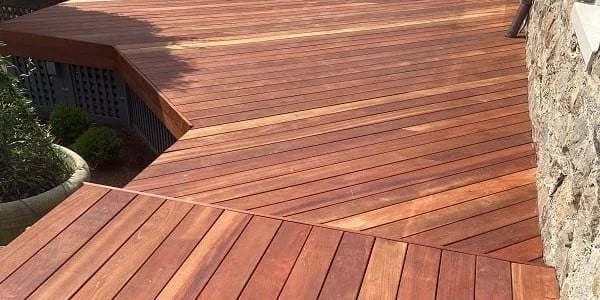
Related Posts
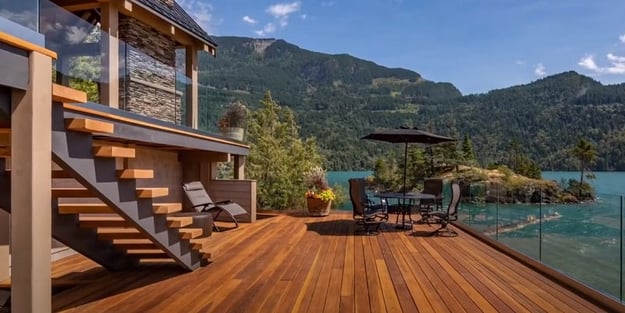
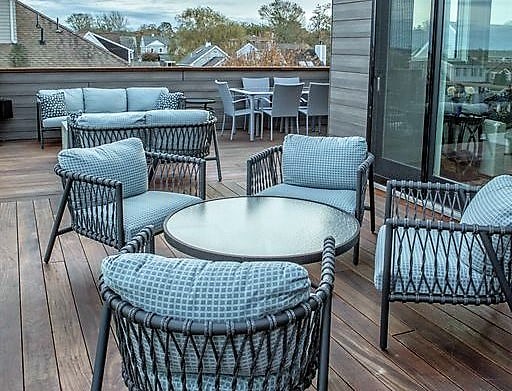

If you are planning a deck design project, you might have seen Jatoba decking. Also known as Brazilian Cherry, Jatoba is well known as interior flooring. But did you know it can be a smart choice for your exterior project? Here’s the top five reasons why you should not overlook this remarkable natural wood species when it comes to your decking.
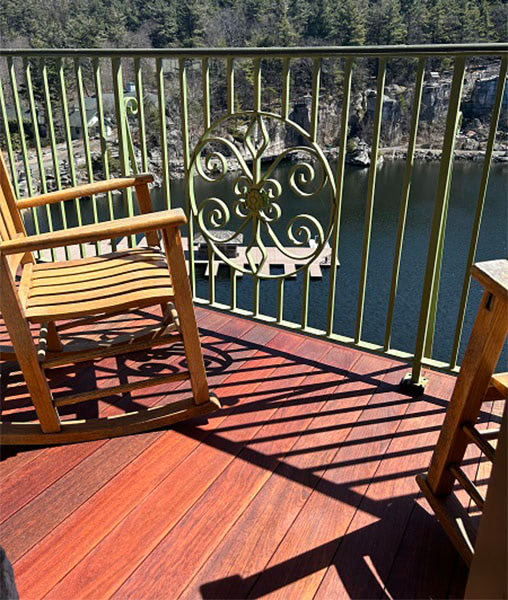
A beautiful Jatoba wood deck balcony Photo courtesy of @Matt Cline
When it comes to smart exterior deck design, considering these five crucial factors — Color, Care, Installation, Sustainability, and Price — will help you make an informed decision.
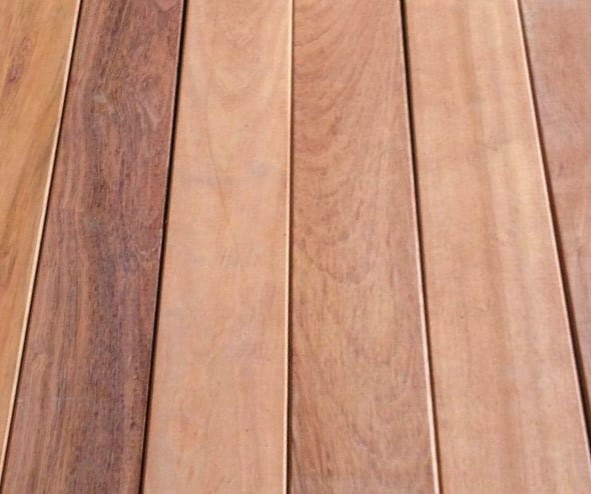
Unfinished Jatoba decking in a typical color range shows the beautiful variants in its natural color.
Jatoba boasts a beautiful red-brown toned color range that is warm and welcoming in an outdoor space. Jatoba graining shows some beautiful tropical striping, adding a stunning visual element to your deck.
Jatoba, (aka Brazilian Cherry) decking starts out in paler pink and tan hues. With a little exposure to UV rays the wood decking darkens quickly to rich cherry tones that compare favorably to other popular decking materials such as Ipe to Western Red Cedar.

Jatoba decking color vs Ipe decking color, with Penofin finish
MORE IDEAS: JATOBA DECKING GALLERY
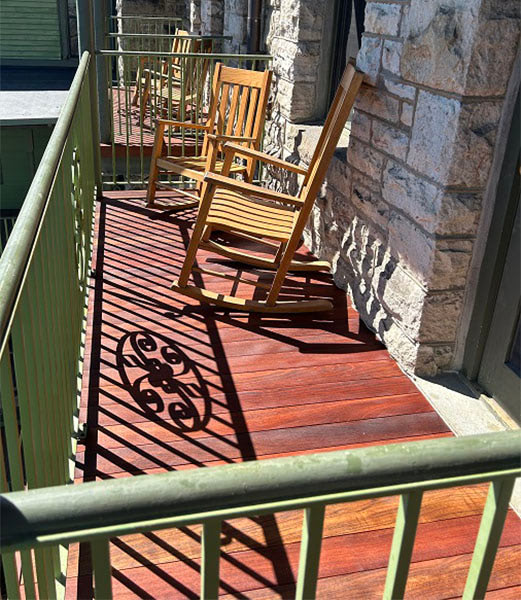 Jatoba was chosen over Ipe wood for this balcony project. Photo courtesy of @Matt Cline
Jatoba was chosen over Ipe wood for this balcony project. Photo courtesy of @Matt Cline
Jatoba is a hardwood, with a high fiber density. Unlike Western Red Cedar or Redwood, both softwoods, Jatoba has a high natural resistance to decay and stability characteristics. These make it a make it a hassle-free decking option.
Jatoba, like most exterior hardwoods:
RELATED: How Exterior Woods Weather
.jpeg?width=900&height=1200&name=Jatoba%20hardwood%20decking%20in%20Richmond%20Virginia%20(1).jpeg)
While Jatoba is not quite as dense or hard as Ipe hardwood, it is much harder than cedar or redwood, making it a reliable and robust material for your deck.
Because it is a hardwood with a higher density, installing Jatoba may require some additional effort compared to softwoods. However, using carbide-tipped blades can make all the difference, ensuring a smoother installation process. Otherwise, installing Jatoba is not much different than installing any other quality decking.
And the high density gives you more advantages over the lifetime of your project. While Jatoba is not quite as dense or hard as Ipe hardwood, it is much harder than cedar or redwood, making it a reliable and robust material for your deck.
RELATED: Ipe Decking Alternative- Jatoba Wood Decking
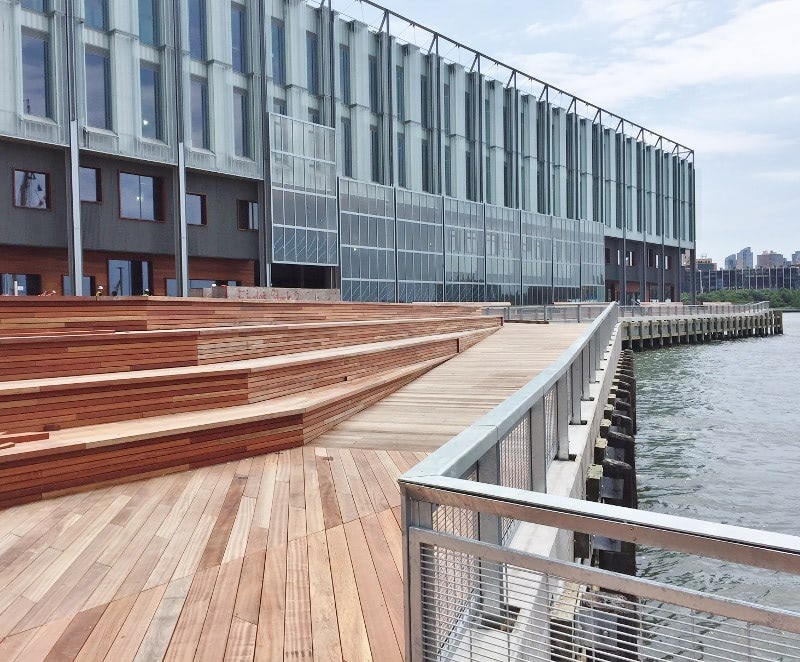 Shown unfinished, this FSC Certified Jatoba was chosen for a New York City deck
Shown unfinished, this FSC Certified Jatoba was chosen for a New York City deck
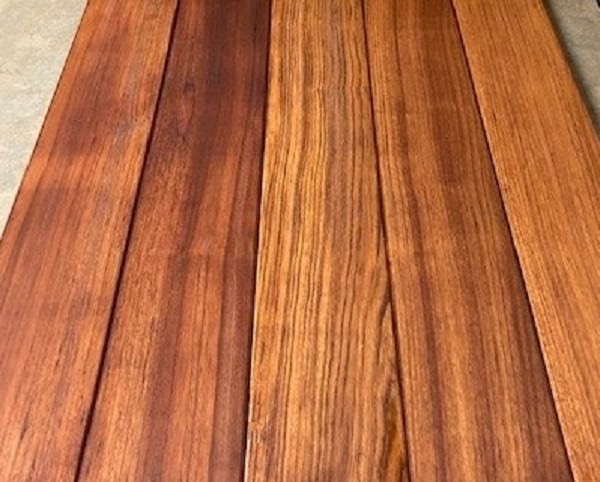 Jatoba hardwood decking finished with Penofin Hardwood Oil Penetrating Oil, bringing out the richness of the color range and grain patterns.
Jatoba hardwood decking finished with Penofin Hardwood Oil Penetrating Oil, bringing out the richness of the color range and grain patterns.
You might even be stunned when you see how much more affordable Brazilian Cherry decking is compared to Western Red Cedar. Lower prices and with all the durability benefits of a hardwood decking.
Despite its high quality and durability, Jatoba offers a budget-friendly alternative for your deck project. Consider the upfront cost versus the return on investment, and you'll likely find that Jatoba is not only a cost-effective option but also a wise long-term investment.
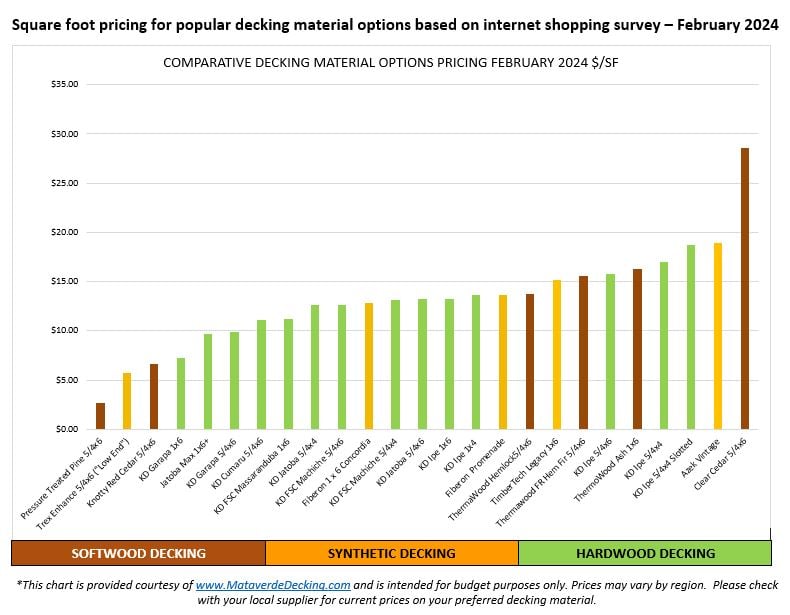
Comparative Decking Material Options Pricing March 2023 price per square foot. Chart from Blog: Decking Cost: Decking Price Alert 2023
Jatoba wood decking presents a range of benefits for your deck design project, including its natural beauty, low maintenance requirements, ease of installation, sustainability, and budget-friendly pricing. By considering these five key facts about Jatoba, you can make an informed decision about whether it's the right decking material for your outdoor space.
If you have questions or need assistance with your deck project, please don't hesitate to contact us. We're here to help you create the outdoor space of your dreams with the perfect decking material.


